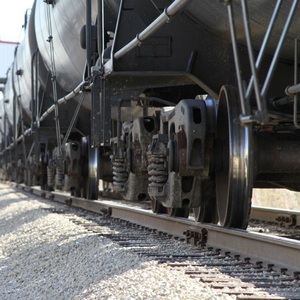DOE releases request for information to achieve rail sector decarbonization

November 22, 2023
BY U.S. Department of Energy
Recognizing that the rail sector generates 2 percent of U.S. transportation greenhouse gas (GHG) emissions, the Department of Energy has released the Progression to Net-Zero Emission Propulsion Technologies for the Rail Sector request for information (RFI) to understand applicable decarbonization strategies. The purpose of this RFI is to solicit feedback from industry, academia, research laboratories, government agencies, other stakeholders, and the public on issues related to alternative propulsion technology advancement within the rail sector and achieving net-zero GHG emissions.
The Biden-Harris Administration has established ambitious goals to address global climate change and is committed to developing and implementing robust and actionable transportation decarbonization strategies. In January 2023, DOE, the Department of Transportation, the Department of Housing and Urban Development, and the Environmental Protection Agency released the U.S. National Blueprint for Transportation Decarbonization, a landmark interagency framework to eliminate emissions from the transportation sector – including rail – by 2050. This significant transition requires rail supply chain coordination, including alternative fuel production, feedstock supply, locomotive engine manufacturing, safety implementation, customer demand, and government regulation.
Advertisement
Advertisement
To develop a national strategy to decarbonize the rail sector, two critical questions must be addressed:
- Which alternative rail propulsion technologies are most promising technically and economically?
- What is the timeline for the rail sector to transition to net-zero emission technologies?
The net-zero emission propulsion technologies under consideration for the intent of this RFI for transitional, interim use until 2030 are: biodiesel, renewable diesel, ammonia, methanol, hydrogen fueled internal combustion engines, and ethanol. The technologies under consideration for mid- to long-term use are: hydrogen fuel cells, batteries (tenders or built-in), direct electrification (catenary), or a combination of different technologies.
Jointly released by DOE’s Bioenergy Technologies Office (BETO), Vehicle Technologies Office, and Hydrogen and Fuel Cell Technologies Office, the RFI aims to collect knowledge from stakeholders to guide actions regarding future propulsion technologies, research and infrastructure investments, and coordination to ensure the rail sector is meeting or exceeding U.S. decarbonization milestones.
Advertisement
Advertisement
The RFI is posted to EERE Exchange and Grants.gov. Responses must be submitted electronically as Microsoft Word (.docx) attachments to GreenRail@ee.doe.gov no later than 5:00 pm ET, on January 12, 2024.
This RFI is not a Funding Opportunity Announcement (FOA); therefore, EERE is not accepting applications at this time. EERE may issue a FOA in the future based on or related to the content and responses to this RFI; however, EERE may also elect not to issue a FOA. There is no guarantee that a FOA will be issued as a result of this RFI. Responding to this RFI does not provide any advantage or disadvantage to potential applicants if EERE chooses to issue a FOA regarding the subject matter. Your response to this notice will be treated as information only.
Related Stories
Global digital shipbuilder Incat Crowther announced on June 11 the company has been commissioned by Los Angeles operator Catalina Express to design a new low-emission, renewable diesel-powered passenger ferry.
ATR and French SAF aggregator ATOBA Energy on June 19 signed a memorandum of understanding (MOU) to explore ways to facilitate and accelerate sustainable aviation fuel (SAF) adoption for ATR operators.
Argent Fuels, a leading provider of carbon-saving fuels in the UK, is accelerating its efforts to support a greener future. The expansion of its High Blend Biodiesel will supply to bus, coach, HGV fleets and rail in the south of the UK.
Sprague Operating Resources LLC on June 24 announced it has been selected by the New York City Department of Citywide Administrative Services to supply renewable diesel for its marine fleet, including the iconic Staten Island Ferry.
On June 17, the NYC Department of Citywide Administrative Services and the Department of Transportation announced the start of the Staten Island Ferry’s transition to renewable diesel, marked by the delivery of the first barge of fuel.
Upcoming Events










